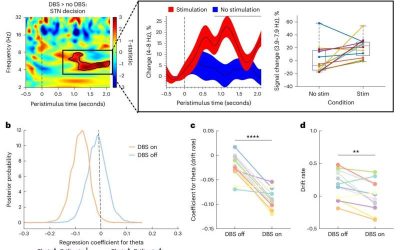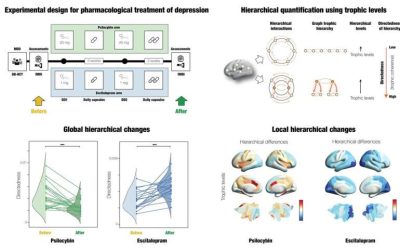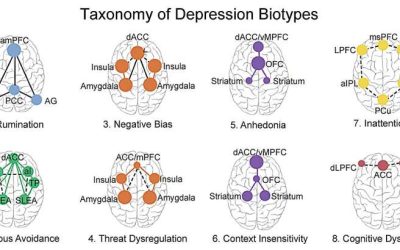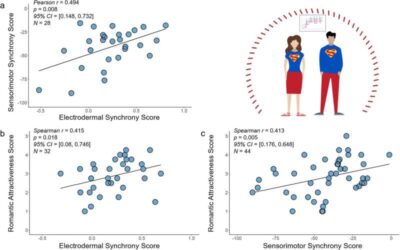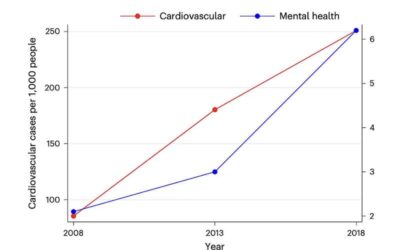Chronic stress can have adverse effects on both the minds and bodies of affected individuals. Past studies suggest that particularly stressful life events can also impact people's cognitive abilities, for instance, producing changes in their memory and sometimes...
Psychology & Psychiatry
Using machine learning to uncover predictors of well-being
Irrespective of their personal, professional and social circumstances, different individuals can experience varying levels of life satisfaction, fulfillment and happiness. This general measure of life satisfaction, broadly referred to as "well-being," has been the key...
Deep brain stimulation study models impulsivity and risk aversion
Deep brain stimulation (DBS) is a neurosurgical procedure that entails the implantation of electrodes in specific brain regions, to subsequently stimulate these regions via high frequency electric impulses. This procedure is a highly effective therapeutic intervention...
Treating depression with psilocybin or escitalopram found to result in different hierarchical brain reconfigurations
Depression is one of the most common mental disorders, affecting an estimated 300 million people worldwide. While there are currently numerous pharmacological treatments for depression, how different treatments impact the brains of the patients they are administered...
Exploring the link between time perspective and life satisfaction in adulthood
Humans can relate to the passage of time differently, experiencing a multitude of thoughts and emotions about their past, present and future. In psychology, these time-related mental representations are collectively referred to as "time perspective."
Humans employ forward and backward prediction strategies adaptively in different situations, research suggests
Humans often predict the outcomes of their decisions and actions, as this helps them to make sense of the world around them and navigate their present circumstances. Many previous psychology studies suggest that humans primarily make forward predictions, which entail...
Transcranial magnetic stimulation shows promise for treatment-resistant depression biotype
Depression is one of the most common mental health disorders worldwide, estimated to affect about one in eight people worldwide. Once individuals experiencing symptoms of depression approach a psychiatrist or psychotherapist, they are often rapidly diagnosed, yet...
Study links social and non-social synchrony to romantic attractiveness
Romantic relationships and attraction among humans have been the focus of numerous psychological and neuroscientific studies. While these studies have unveiled some of the neural and mental processes associated with romantic bonding, many questions about their...
Study explores the link between stock market fluctuations and emergency room visits in China
The advent of computerized trading and fintech platforms has made investing in stocks easier and more accessible to individuals worldwide. This has led to an increase in stock market participation in many countries, including China.
Large-scale study assesses the short-term impact on stress of self-administered mindfulness exercises
Mindfulness practices, derived from ancient meditative traditions, have become increasingly popular in modern society. Past studies have found that these practices, which encourage people to intentionally direct their attention to the present moment, can have a...



